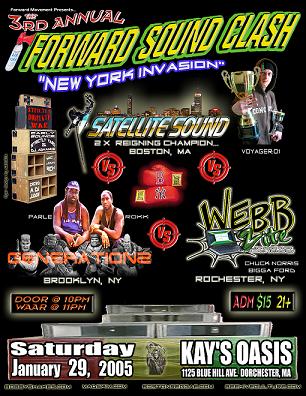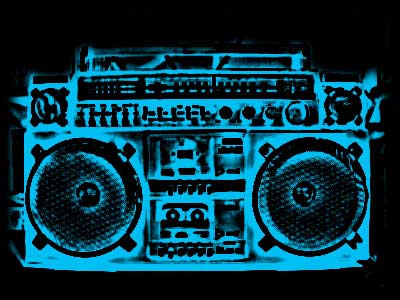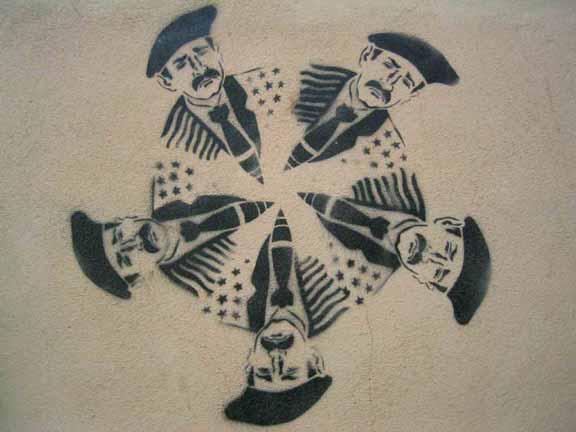blue skies of hawaii smiled on our visit, for sure.

enough to make me shave my beard in hopes of catching some sun on it.

our first few days on oahu, however, were unusual in that we experienced several consecutive days without much sun. apparently clouds and rain are not so infrequent during the winter, but rarely are they so persistent. it didn't really matter to me and bec, though, as the temperature itself was an incredible relief from the cambridge cold. far as we were concerned, it couldn't have been more comfortable and welcoming: 75 degrees, partly cloudy, and terribly green all around.
our welcome was made especially warm by our gracious hosts, amy&
ron, who have been living in honolulu since the fall of 2003. a&r are old friends from the
madcity who finally decided to up-and-live in paradise for a while (as opposed to all the tourists who simply come to live-it-up--a high % of whom, i'm told, never leave the filled-in-swamp and fake-beach-cum-shopping-center that is
waikiki). a&r are two great kids, and a great couple, too. back in madison we used to go out dancing together 2-3 nights a week. (i lost a cool twenty pounds dancing to cheesy house and hard techno back in grad school.) and occasionally we'd
get together for a big
freestyle session, a hip-hop/techno threesome of sorts--ron on
the box, amy on the tables, and me on the mic.

last summer, amy&ron got married. they had the good taste to have a small, short ceremony, an indian-food dinner (~saucy~), and an all-night rave of a party in the middle of nowhere northern illinois. for the occasion, i composed a song. (it wasn't my
first attempt at wedding music.) for the wedding of my dear new-honoluligans, i was excited to have stumbled upon the existence--nay, proliferation--of the
hawaiian wedding song, which has been recorded
dozens of times. i went straight to kazaa and downloaded as many versions as i could find. i was lucky enough to locate renditions by
jim reeves,
elvis presley,
andy williams,
santo and johnny, and
makaha sons of ni'ihau.
using the andy williams version as the tonal center, i pitched the other tracks around until i found relationships that sounded good to me, but not according to any "rules" of harmony. (you'll hear that there is a good deal of "dissonance" between the tonal-centers i settled on.) i then "warped" each of the tracks--dig the incidental alias-tremelo effects--so that i could sync them in time at the somewhat arbitrary (but, i would add, stately and banging) tempo of 75 bpm (which happens to be 15 bpm faster than the original tempo of the andy williams "lead vocal"). in some cases, i applied filters and other effects to the tracks, especially since, as random, peer-to-peer mp3 files, they were not always of the highest quality. in the case of the fuzzed out slack-key track (the timbre of which i've come to like quite a bit), i used bit-reduction and white-noise to cover up the unlistenable digital belches of a shitty mp3. when pitched up to fit the andy williams tuning, the elvis sounded downright eerie and jim reeves hopped right on the kanye-wagon, so i decided to bring them in later in the song as "backup singers" of sorts. to round out the form, i use a couple classic breaks--the
blackgrass and
billiejoe--sometimes in combination, and thus give the crooning a bit more drive. (i like the way that the rolled snare gives the track an air of gravitas, if in an ironic kind of way.) finally, i cut and paste some parts here and there, such as the opening percussion loop, culled from the elvis cut.
so, check out amy&ron's
hawaiian wedding song (<--click here to listen).
anyway, hawaii seems to have agreed with a&r, or vice versa, because now they're talking about staying for several more years. they even speak with a hint of condescension about folks from the "mainland" with their no-respect-for-local-mores, johnny-come-lately attitudes. apparently, it's easy to grow comfortable in hawaii. still, this wasn't so immediately apparent to me when i was observing life in honolulu and (some of) its suburbs.
for one thing, i found the architecture pretty uninspiring. lots of beige high-rise and low-rise apartment buildings, which, with a few exceptions, all appear to have been built in the headlong postcolonial rush of the 50s and 60s. (let me admit that i have very little knowledge of hawaiian history, however, so i hope that
jeff, hawaiian-homeboy himself, doesn't pull my card too hard.) as a first impression anyway, especially when thinking of the place as somewhere one lives rather than simply visits, it felt like too many people living on top of each other, too much boxy concrete, too little primary engagement with the natural riches of the island. but that's life in the dog-eat-dog, and my overriding impression of hawaii (as seen through oahu) was that it is a surprisingly american place for the middle of the pacific. strip malls, fast food, fat folk, and a noticeable military presence (though, according to ron, not as noticeable as it was several months ago--go figure).
when we drove out to oahu's northwest corner,
ka'ena point, for a little hike to the spot where
albatross chill and they film that
lost show, we drove past ewa beach (where amy teaches special-ed high schoolers) and along the southern and western coasts, which happen to be among oahu's poorest areas. this was, unsurprisingly, a depressing drive. juxtaposed with the splendid hills--i don't care what people say, the leeward side of the island is quite beautiful--were ramshackle tents on the beach, spartan single-family homes, and the familiar third-world odor of burning trash. apparently, as in many other american cities and towns,
crystal meth has ravaged poor families here, and i could sense the bleakness and desperation of addiction in the air. in my privileged position as traveler and vacationer, i had a hard time reconciling what seemed like hawaii's abundant natural riches with the impoverished lives that so many seemed to be living in the midst of such wonders. it reminded me of the jamaicans i met who couldn't wait to leave port antonio for mo'bay or negril and had long stopped noticing the verdant hills and shining sea.
(really though, i should stick to poking my nose around one island at a time, so let me chill on being critical of what i saw. let me turn instead to what i heard.)
wherever i go, i've always got my ears pricked (
...seeking what will transmit, the scribes can apply to transcript, yo...), and while driving around oahu we listened to a lot of hawaiian radio, especially
KTUH. generally, when flipping the dial, i sought out what i would call traditional hawaiian pop: slack-key guitar, pretty melodies. what surprised me, however, was the ubiquity of reggae--and not just jamaican reggae (though i heard a lot of that--and quite a variety, too). most of the reggae i heard was
locally produced. it seems that hawaii has a reggae industry as vibrant, or at least prodigious, as perhaps any other place i've ever been to--save for my favorite likkle island. though there were hints of dancehall style (especially the occasional raggamuffin vocal), most hawaiian reggae songs seem to go for a one-drop, lover's rock or roots type of feel. jamaican accents apparently aren't required in this adopted genre, and most of the singing more closely resembles contemporary r&b (e.g., whiners like usher and r. kelly--but shit, that's true in jamaican singing these days, too). hawaiian reggae tends to focus on love and romance, positive vibes, and the environment. i have to admit that i found most of it to be a little on the cheesy side for my tastes. but it's definitely interesting as an example of reggae gone abroad. hawaiians have drawn on reggae's resources in a very different way than, say, new yorkers or panamanians, japanese or italians. (i forget who's realer--
jawaiians or
germaicans?) and i love that there's an island connection going on here, though i don't really understand quite what that means. (the people at
hanauma bay prolly didn't think twice about grabbing the melody from disney's "under the sea" [itself probably cribbed from a calypso song] to accompany their snorkel-safety instructional-video.)
the island's natural beauty is almost overwhelming. the beaches were incredible, and by far the highlight of the trip. kailua with its sleepy serenity, makapuu with its crushing waves, honauma bay with all its snorklable beauty, and waimanalo with its sheer perfection. on the north coast, the waves were so fierce that swimming was banned at most beaches. the churning surf was gorgeous to behold though, and rather humbling in light of recent events in south asia.
we did a bunch of hiking, too, up into some serious bamboo groves and up to some wicked waterfalls and watering holes. (sorry, no pics. couldn't be bothered to record everything, y'know. gets too
heisenberg for me sometimes.)
one day we took the
H3 out of honolulu. we drove through the hills and over to kaneohe, on the
east side of the island, where we stopped in search of some funky, hawaiian-print fabric suitable for kitchen curtains. (something to cover up the weather-stripping, knamean.) some of the prints were pretty wild, though many were a lil' over-the-top for us. and though they might have made for passable shorts, they weren't the type of patterns you'd necessarily want to see while you're making coffee or cooking dinner. anyway, we finally found something that we thought could work. big ups to fabric mart on the
kamehameha for a serious selection and quite a deal on some pretty threads. [hope to have pics of some funky curtains before long.]

not far from fabric mart, right off the kahekili, is the valley of the temple where one can visit the
byodo-in buddhist temple, a replica of the 900-year-old byodo-in in uji, japan. constructed without the use of nails, the temple is truly a sight, as are the koi populating the ponds that surround it, the elegant gardens, and three-ton brass bell.

on this particular day, however, one of the managers was busy chatting on her cellphone, and the chatter seemed rather inharmonious with the purpose and air of the building. the place's aura was further diminished for me when i noticed that part of the temple had been converted to an unceremonious office-space and that the buddha statues and ponds were littered with pocket change. (such an ironic sight--the buddha weighed down with nickels.) so i banged the gong, which--consistent with the high quality of the architecture--was satisfyingly resonant, and we took off. headed back toward town, we noticed a sign for some botanical gardens and followed them to what was perhaps our favorite little spot on the island. (ok, aside from waimanalo.)
ho'omaluhia botanical gardens is a 400-acre park featuring tropical plants from around the world. in addition to hawaiian and polynesian plants (each of which reside in their own section), there were areas for (south/central) american, african, indian and sri lankan, autralian and melanesian varieties. and almost everything was a sight to behold, including this piece-of-work:

on top of that, we were pretty much the only ones there, save for some ducks who held down their turf when we approoched the garden's reservoir.

some of the plants required a closer look, and photos just won't do them justice.

in most cases, a closer look revealed shapes, colors, and textures like none i've seen before (and in some cases, the camera was able to capture them).

wild, huh? and these fuzzy-looking appendages below belong to the
lipstick tree, an amazonian transplant.

here's another view.

from a distance, one understands the "lipstick" title a bit better, as their redness is more visible.

a little further on, i found one on the ground that had been split open. even in this broken state, it was simply entrancing.

other trees, such as hawaii's native
wiliwili, were eye-catching in their own way.

i was particularly fond of this next one (whose name i forget) and it's volleyball-shaped "fruit." (incidentally, i'm told that volleyball is the most popular sport
in hawaii, which reminded me that recently i learned that volleyball is
supposedly the most played sport in the world.)

here's a bit of a closer look.

(no, it's not a
pineapple. those are generally grown on the north side of the island at
this creepy place, which we made sure to avoid. [don't get me started about the
pineapple business, for real.])

fuck a pineapple. gimme some
poke and i'm straight. actually, when it comes to hawaiian food (and i know
jeff gon' kill me for saying this), i was pretty underwhelmed. don't get me wrong: there are some real culinary delights to be had. and our dinner at
sam choy's left no doubt that, as far as high-end eating goes, it's the "island favorite" for a reason. even our trip to
ono's, which definitely serves the most straight-up, traditional hawaiian cuisine in honolulu, turned out to be a bit of a let-down. (and i even had a good helping of
poi! which, being a day-old, had a tartness that was not disagreeable, though slightly strange. being a purple puddle of mush doesn't help. next time, i'd probably go with rice.)

in my own defense, check out the
following recipes, and you'll get a sense of what goes into (or, more tellingly, doesn't go into) hawaiian cuisine. part of the "problem" here, i think, is that hawaiian cuisine was built on what strikes me now, in this age of globalized produce and
brazilian beef, as a relatively small pool of available ingredients. really, i'm probably just revealing my biases as a health-conscious, spice-heavy kind of guy when i say that i generally found hawaiian food to be a bit bland and a bit heavy. i can see how plate lunches--various BBQ'd meats, two scoops of white rice, and macaroni salad--might make good after-beach food, but, for real, do they have to put so much mayo on the macaroni?
(anyway, i'm just mouthing off again. but i remain open-minded and open-mouthed about the whole thing, so if you're an offended fan of hawaiian cusine, please shed some light on the gastronomy of the place for me.)
still, all the
L&L curry-beef plate-lunches in the world couldn't weigh down what amounted to a wonderful vacation. the sun and fun did us a lot of good. and i'm hoping to make our moment of sweet aloha last. at this point, not too far removed from the bodily pleasures of riding waves at waimanalo, i hope to be dreaming in hawaiian technicolor at least until spring hits, with visions of neon lipstick trees dancing in my head.

once again, to jeff and to hua, and especially to a&r, and also to everyone else who shot us a smile or flashed us a
shaka: mahalo, mahalo, mahalo.



































